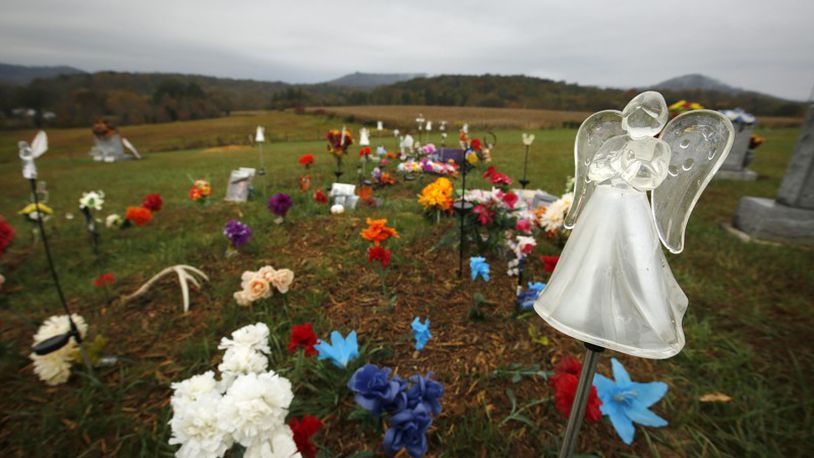“Information obtained from law enforcement indicates Mr. Rhoden was operating a large-scale marijuana growing operation on his property with the purpose of distributing the marijuana,” says the state’s response.
“Therefore, while the Attorney General recognizes your loss, the law unfortunately requires that your claim be denied.”
Rhoden was found dead in his home in Pike County in April, having been shot to death along with seven other members of his family at three separate crime locations. Three children ages 3 and under were left alive in the homes.
The murderers have yet to be identified and the investigation is ongoing.
An application is still pending for funeral expenses requested for Dana Rhoden, Chris Rhoden Sr.’s ex-wife and mother of his three children.
That request was made by Judy Manley, Dana's mother. She and Dana's father Leonard Manley told the I-Team in October that the ongoing investigation was holding up life insurance payments, probate and victims compensation payouts.
Leonard Manley said any cash they get will go to their great-grandchildren.
The state paid victims compensation claims for other victims of the killing. The state paid a funeral home $7,500 each for the funerals of Clarence “Frankie” Rhoden, Chris Rhoden Jr., and Hanna Rhoden who were both Chris Rhoden Sr.’s children.
For Frankie’s girlfriend, Hannah Gilley, the state paid $5,843 for a funeral and $1,483 for a monument.
Under Ohio’s victim compensation program, applicants can be reimbursed up to $50,000 for economic losses they incur as a result of a violent crime. Covered expenses include medical expenses, funeral expenses (up to $7,500), and lost wages from dealing with a funeral or court proceedings.
But people aren’t eligible for the fund if the victim’s actions contributed to the crime, the victim was engaged a violent felony or drug trafficking within 10 years of the incident or the victim has felony convictions on file.
The fund paid out a total of $7.4 million in 2015, the most recent year for which a full report is available. An average of $2,530 was paid to a total of 2,948 people, according to a state report.
About the Author
